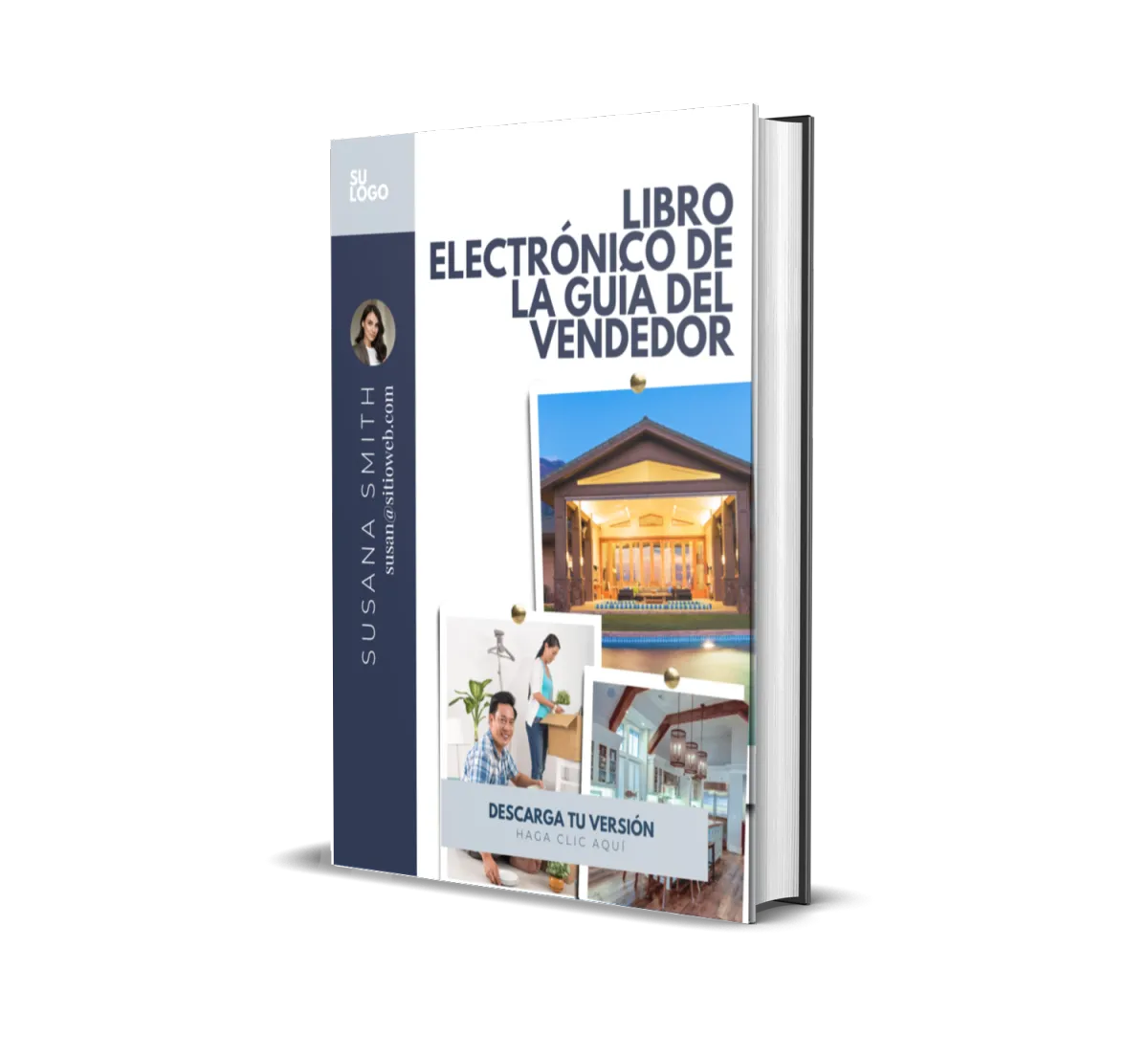617-821-1757

Looking For FHA Loans?
Apply today for the mortgage
that’s right for you.
Unlock Low Rates with Ease
Discover how Geovanne Colon simplifies the mortgage qualification process for you.
Apply today for the mortgage
that’s right for you.
Unlock Low Rates with Ease
Discover how Geovanne Colon simplifies the mortgage qualification process for you.
Low Rate.
Zero Hassles.
Get a free quote
Low Rate.
Zero Hassles.
Get a free quote
Feel Overwhelmed by Mortgage Choices? I Understand.

Feeling Lost in a Sea of Mortgage Options? Finding the right mortgage can be a daunting task. With an overwhelming array of rates, terms, and lenders, it's easy to feel lost and uncertain. Are you worried about high interest rates, hidden fees, or choosing a mortgage that doesn't fit your long-term goals?
Why Choose Us?
Ready to Start?
Your perfect home won't wait forever, and neither should you. Begin your journey today with a loan officer that puts you first. By choosing us, you're not just getting a loan – you're gaining a lifelong partner in all your mortgage endeavors.
Start your no-obligation consultation now and join the myriad of satisfied homeowners who have unlocked the doors to their future with ease and confidence. Dive into our world of simplified lending, and let's turn your homeownership dreams into reality.
Welcome Home!
Loan Programs We Help With
Seamless Solutions, Limitless Possibilities
Residential Mortgage Programs
1. FHA Loans
Federal Housing Administration (FHA) Loans
• Suitable for first-time homebuyers
• Low down payment options (as low as 3.5%)
• Requires mortgage insurance
• Lenient credit scores accepted
• 203K Renovation Loans Available
2. Conventional Loans
Conventional Mortgage Loans
• Preferred by borrowers with stronger credit
• Down payments as low as 3%
• Available in fixed or adjustable rates
• No government insurance premiums
• HomeStyle Renovation Loan Available
3. USDA Loans
US Department of Agriculture (USDA) Loans
• Ideal for eligible rural and suburban homebuyers
• Zero down payment
• Low insurance costs
• Income and geographic restrictions apply
4. VA Loans
Veterans Affairs (VA) Mortgage Loans
• Exclusively for veterans, active-duty service members, and eligible spouses
• No down payment required
• No mortgage insurance needed
• Competitive interest rates
A. ITIN - No Social Security Loans
• For borrowers with an Individual Tax Identification Number
• Lacks Social Security number
B. 1099 Loans
• Designed for independent contractors or self-employed individuals
• Based on the 1099 tax form income
C. VOE Only
• Verification of employment as the primary source of income validation
D. Asset Depletion
• Utilizes borrower's liquid assets for qualification purposes
E. Bank Statement Loans
• Income based on bank statements, suitable for self-employed borrowers
F. DSCR - Investor No Income Verification
• For real estate investors, using property cash flow as a qualification metric
Non-Qualified Mortgage (Non-QM) Loans
Loan Programs We Help With
Seamless Solutions, Limitless Possibilities
Residential Mortgage Programs
1. FHA Loans
Federal Housing Administration (FHA) Loans
• Suitable for first-time homebuyers
• Low down payment options (as low as 3.5%)
• Requires mortgage insurance
• Lenient credit scores accepted
2. Conventional Loans
Conventional Mortgage Loans
• Preferred by borrowers with stronger credit
• Down payments as low as 3%
• Available in fixed or adjustable rates
• No government insurance premiums
3. USDA Loans
US Department of Agriculture (USDA) Loans
• Ideal for eligible rural and suburban homebuyers
• Zero down payment
• Low insurance costs
• Income and geographic restrictions apply
4. VA Loans
Veterans Affairs (VA) Loans
• Exclusively for veterans, active-duty service members, and eligible spouses
• No down payment required
• No mortgage insurance needed
• Competitive interest rates
Non-Qualified Mortgage (Non-QM) Loans
A. ITIN - No Social Security Loans
• For borrowers with an Individual Tax Identification Number
• Lacks Social Security number
B. 1099 Loans
• Designed for independent contractors or self-employed individuals
• Based on the 1099 tax form income
C. VOE Only
• Verification of employment as the primary source of income validation
D. Asset Depletion
• Utilizes borrower's liquid assets for qualification purposes
E. Bank Statement Loans
• Income based on bank statements, suitable for self-employed borrowers
F. DSCR - Investor No Income Verification
• For real estate investors, using property cash flow as a qualification metric
More Loan Programs
Foreign National Loans
• Tailored for non-U.S. citizens looking to buy investment or vacation properties in the U.S.
• May require larger down payments and proof of foreign income.
Jumbo Loans
• Exceed the loan limits set by the FHFA for conventional mortgages.
• Requires non-traditional underwriting to accommodate the larger loan amount.
Real Estate Investor Loans
• Customized loans for experienced real estate investors.
• Can include options for multiple properties under a single loan (blanket loans).
Non-Warrantable Condo Loans
• For condos that do not meet specific requirements by Fannie Mae or Freddie Mac.
• Necessary for financing condos in buildings with more owner-occupied spaces or litigation issues.
Credit Event Loans
• Available to borrowers with significant derogatory credit events, such as bankruptcy or foreclosure.
• Typically requires a higher down payment or additional reserves.
Hard Money/Private Lending
•For immediate or short-term financing needs
• Higher-cost, short-term loans
• Asset-based lending criteria
• Terms typically around 12 months
Fix and Flips
• Loans crafted for renovating and flipping properties
Commercial Loans
•Tailored for businesses to purchase or refinance commercial property
• Offering solutions for office buildings, retail spaces, and industrial properties
• Custom terms to align with business strategies
New Construction
• Financing for ground-up construction projects
Small Business Administration (SBA) Loans
• Federally backed to help start or grow a business
• Lower down payments
• Longer repayment terms
• Focused on small businesses
Bridge Loans
• Short-term loans to bridge the gap during transitional periods
Down Payment Assistance Programs
• Provides prospective homebuyers with loans or grants that they can use toward the down payment for a house.
• Most down payment assistance programs are designed for first-time homebuyers and offered by various institutions, such as government, non-profits, or lenders.
More Loan Programs
Foreign National Loans
• Tailored for non-U.S. citizens looking to buy investment or vacation properties in the U.S.
• May require larger down payments and proof of foreign income.
Jumbo Loans
• Exceed the loan limits set by the FHFA for conventional mortgages.
• Requires non-traditional underwriting to accommodate the larger loan amount.
Real Estate Investor Loans
• Customized loans for experienced real estate investors.
• Can include options for multiple properties under a single loan (blanket loans).
Non-Warrantable Condo Loans
• For condos that do not meet specific requirements by Fannie Mae or Freddie Mac.
• Necessary for financing condos in buildings with more owner-occupied spaces or litigation issues.
Credit Event Loans
• Available to borrowers with significant derogatory credit events, such as bankruptcy or foreclosure.
• Typically requires a higher down payment or additional reserves.
Hard Money/Private Lending
•For immediate or short-term financing needs
• Higher-cost, short-term loans
• Asset-based lending criteria
• Terms typically around 12 months
Fix and Flips
• Loans crafted for renovating and flipping properties
Commercial Loans
•Tailored for businesses to purchase or refinance commercial property
• Offering solutions for office buildings, retail spaces, and industrial properties
• Custom terms to align with business strategies
New Construction
• Financing for ground-up construction projects
Small Business Administration (SBA) Loans
• Federally backed to help start or grow a business
• Lower down payments
• Longer repayment terms
• Focused on small businesses
Bridge Loans
• Short-term loans to bridge the gap during transitional periods
Down Payment Assistance Programs
• Provides prospective homebuyers with loans or grants that they can use toward the down payment for a house.
• Most down payment assistance programs are designed for first-time homebuyers and offered by various institutions, such as government, non-profits, or lenders.
Who We Help?
Seamless Solutions, Limitless Possibilities
First Time Home Buyers
We know how overwhelming the process of buying a home is, especially if it is the first time that you're doing it. We will work closely with you to explain the process, to protect you from making mistakes that could cost you later, and to ensure that your mortgage gets approved and you get the home that you are so excited to be buying!
Move Up and Second Home Buyers
Buying a new home when you currently own one has it's own unique set of concerns. We can answer all of your questions about how to qualify and purchase a home when you already own one whether you're buying a new primary residence or a second vacation home.
Refinancing Home Owners
If you already own your home but you are looking to refinance to either save money with a lower interest rate or possibly take some cash out for any reason, we can help you with that. We also can show you how to make sure you are structuring your new financing to get the best deal possible.
Investment Buyers
If you're buying real estate for investment purposes, we can help you secure low rate financing to maximize your ROI.
Seniors Seeking Reverse Mortgages
If you are 62 years or older and are looking for options to stay in your home without a mortgage payment or to access your home's equity while still living there, I can answer your questions about reverse mortgages so you can decide if they are right for you.
What My Clients Say
Ready to Find Your Perfect Mortgage?
Are You A First Time Home Buyer?
Download Our Free Home Buyer's Guide

Other Resources You'll Find Helpful

Buyer's Guide for Real Estate Agent
(English)

Buyer's Guide for Real Estate Agent
(Spanish)

Seller's Guide for Real Estate Agent
(English)

Seller's Guide for Real Estate Agent
(Spanish)
Calculate Your Mortgage Payment
Our Blogs

Before You Apply: Get Mortgage Ready
Before You Apply: Get Mortgage Ready
Buying a home can be one of the most significant financial decisions in a person's life. Before you apply for a mortgage, it's crucial to understand the steps involved in getting mortgage ready. By preparing your finances, improving your credit score, and familiarizing yourself with the mortgage application process, you can enhance your chances of mortgage approval. In this article, we will explore the essential steps to take before applying for a mortgage and provide insights to help you navigate the home loan process effectively.
What Are the Steps to Take Before Applying for a Mortgage?
How to Know Your Budget Before You Apply for a Mortgage?
Determining your budget is the first step when considering how to get a mortgage. This involves evaluating your financial profile, including your income, expenses, and existing debt. A crucial component of this evaluation is your debt-to-income (DTI) ratio, which is calculated by dividing your monthly debt payments by your gross monthly income. Lenders typically prefer a DTI ratio below 43%, but the lower, the better. Using a mortgage calculator can help you estimate how much you can afford in terms of monthly mortgage payments. Additionally, consider other costs associated with homeownership, such as property taxes, insurance, and maintenance, to get a complete picture of your budget.
What Are the 10 Steps to Take Before Applying for a Mortgage?
Before you apply for a home loan, there are ten essential steps you should take to ensure you are prepared for the mortgage application process. First, check your credit report and score to understand your credit history and identify any areas of improvement. Next, calculate your DTI ratio and ensure it falls within acceptable limits. Then, gather necessary documents, including bank statements, tax returns, and proof of income. After that, consider your mortgage options, such as conventional loans, VA loans, and USDA loans, to find the best fit for your needs. Don’t forget to create a budget that accounts for all costs associated with buying a house. Furthermore, it’s wise to save for upfront costs, including down payment and closing costs. Once you have completed these steps, reach out to potential mortgage lenders to discuss preapproval options. Finally, compare interest rates and loan terms to ensure you are getting the best deal.
How Do Closing Costs Affect Your Mortgage Application?
Closing costs can significantly impact your overall mortgage application process and should not be overlooked. These costs, which can range from 2% to 5% of the home’s purchase price, include various fees such as appraisal fees, title insurance, and attorney fees. Lenders will factor these costs into your total financial obligation, which can influence your mortgage approval. Understanding and preparing for these costs is crucial, as they can affect your available cash flow and the amount you need to borrow. Be sure to ask your lender for a detailed breakdown of closing costs early in the process to avoid any surprises.
How Can You Improve Your Credit to Qualify for a Mortgage?
What is a Credit Report and Why is it Important?
Your credit report is a detailed record of your credit history, including any loans, credit accounts, and payment history. It plays a pivotal role in determining your credit score, which lenders use to assess your creditworthiness. A higher credit score can help you qualify for a mortgage with better terms and lower interest rates. Therefore, it is essential to regularly check your credit report for inaccuracies and understand how your financial behaviors impact your score. The Consumer Financial Protection Bureau recommends obtaining a free credit report at least once a year to stay informed about your credit status.
How to Check Your Credit History Before Applying for a Mortgage?
To check your credit history, you can obtain your credit report from major credit bureaus, such as Experian, Equifax, and TransUnion. You are entitled to one free report from each bureau annually. Once you have your report, review it for any errors, such as missed payments or accounts that do not belong to you. If you find inaccuracies, dispute them with the respective bureau to have them corrected. Additionally, consider using credit monitoring services to keep track of your credit history continuously. This proactive approach can help you identify issues early and take corrective measures before applying for a mortgage.
What Steps Can You Take to Improve Your Credit Score?
Improving your credit score takes time, but several effective strategies can expedite the process. Start by paying down existing debt, especially high-interest credit cards, to reduce your credit utilization ratio. Aim to make all payments on time, as late payments can negatively impact your score. Consider becoming an authorized user on a responsible borrower’s credit card, which can help enhance your credit history. Additionally, avoid opening new credit accounts or making large purchases on credit in the months leading up to your mortgage application, as these actions can temporarily lower your score. Lastly, utilizing a credit score calculator can help you estimate how different actions might impact your score over time.
What Do Lenders Look for When You Apply for a Mortgage?
How Does Your Debt-to-Income Ratio Impact Mortgage Approval?
Your debt-to-income ratio (DTI) is one of the critical factors lenders consider when evaluating your mortgage application. A low DTI ratio indicates that you have a healthy balance between your debt and income, making you a more attractive candidate for home loan approval. Lenders typically prefer a DTI ratio below 36%, with a maximum of 43% for most mortgage programs. If your DTI is high, you may want to pay down debt or increase your income before applying for a mortgage. This strategy can improve your chances of securing favorable terms and rates on your mortgage loan.
What Mortgage Options Should You Consider with Your Lender?
When applying for a mortgage, it's essential to discuss various mortgage options with your lender. Common choices include fixed-rate mortgages and adjustable-rate mortgages (ARMs). A fixed-rate mortgage offers stability, as your interest rate remains constant throughout the loan term, while an ARM may start with a lower rate that can fluctuate after an initial period. Your lender can help you evaluate these options based on your financial situation and long-term goals. Additionally, consider whether you may qualify for government-backed loans, such as VA loans for veterans or USDA loans for rural properties, which may offer favorable terms and conditions.
How to Get Preapproved for a Mortgage Loan?
Getting preapproved for a mortgage loan is a significant step in the homebuying process. To begin, gather necessary documents, such as tax returns, bank statements, and proof of income, to submit to your lender. This process allows the lender to assess your financial profile and determine the amount you qualify for. Preapproval provides a clear picture of your budget and can make you a more competitive buyer in the eyes of home sellers. Additionally, it demonstrates to your lender that you are serious about buying a home, which can expedite the mortgage application process.
What Are the Different Mortgage Loan Options Available?
What is the Difference Between Fixed-rate and Adjustable-rate Mortgages?
Understanding the difference between fixed-rate and adjustable-rate mortgages (ARMs) is crucial when considering your home loan options. A fixed-rate mortgage maintains the same interest rate for the entire term, which translates to stable monthly payments. This predictability is beneficial for budgeting and long-term financial planning. In contrast, an ARM offers a lower initial interest rate that may adjust periodically based on market conditions, which could lead to fluctuating monthly mortgage payments. Each option has its advantages and disadvantages, and the best choice depends on your financial situation, how long you plan to live in the home, and your tolerance for risk.
How to Choose the Best Mortgage Lender for You?
Selecting the right mortgage lender is a critical decision that can affect your overall homebuying experience. Start by researching various lenders, comparing their interest rates, loan options, and customer service reviews. Ask for recommendations from family and friends or consult online resources that provide lender ratings and feedback. Once you have a shortlist, reach out to potential lenders to discuss your financial profile and the mortgage options they offer. Additionally, consider the lender's responsiveness and willingness to answer your questions, as this can impact your experience throughout the mortgage application process. A Mortgage Broker is better than a lender for various reasons saving the average consumer money and offering more lending options and service.
What Are the Benefits of Getting Mortgage Insurance?
Mortgage insurance can be beneficial, especially for first-time homebuyers who may not have a significant down payment. Private mortgage insurance (PMI) is typically required for conventional loans when borrowers put down less than 20%. This insurance protects the lender in case of default, allowing borrowers to secure a home loan with a lower down payment. Although PMI adds to your monthly mortgage payment, it enables you to enter the housing market sooner. Additionally, some government-backed loans, like FHA loans, require mortgage insurance, which can also provide opportunities for more buyers to qualify for financing.
How to Prepare for the Mortgage Application Process?
What Documents Do You Need for a Mortgage Application?
Preparing the necessary documents for a mortgage application is a critical step that can streamline the process. Common documents required include bank statements, W-2s, pay stubs, tax returns, and information regarding any existing debts, such as student loans or credit card balances. Additionally, lenders may request documentation related to your assets, such as retirement accounts or other investments. Having these documents organized and readily available can expedite your mortgage application and provide lenders with the information needed to assess your financial profile accurately.
How to Estimate Your Payment and Closing Costs?
Estimating your payment and closing costs is essential for understanding your overall financial commitment when applying for a mortgage. Use a mortgage calculator to determine your estimated monthly payment based on the loan amount, interest rate, and loan term. Additionally, ask your lender for a detailed breakdown of closing costs, which can include fees for appraisal, title insurance, and other related expenses. By having a clear understanding of these costs, you can better prepare your budget and avoid any unexpected financial burdens.
What Should You Know About Interest Rates When Applying for a Mortgage?
Interest rates play a significant role in the overall cost of your mortgage and can vary based on several factors, including your credit score, loan type, and the lender you choose. Be aware that interest rates can fluctuate and are influenced by broader economic conditions. When applying for a mortgage, it's essential to shop around and compare rates from different lenders to secure the best possible deal. Additionally, consider locking in your interest rate once you find a favorable rate, as this can protect you from potential increases while your mortgage application is being processed.
Why choose a Mortgage Broker?
Choosing a mortgage broker can significantly simplify the mortgage process for home buyers. Brokers have access to a variety of lenders and can help you navigate the complexities of applying for a mortgage loan. They will assess your finances before applying, ensuring you understand how much house you can afford and what mortgage payment you can comfortably manage, especially when considering unexpected expenses.
A broker can also help you find the best mortgage rate and mortgage terms, which may allow you to qualify for better mortgage options, even if you have lower credit scores. They will guide you through the loan application process, taking into account factors like employment history and your ability to pay your bills on time. Ultimately, a mortgage broker can help you determine how much you can afford to spend on a new home and ensure you have money for a down payment, making the journey to find a home much smoother.
Why working with a licensed mortgage professional is critical
Working with a licensed mortgage professional is critical for anyone navigating the complexities of home buying. They provide expert guidance through the intricacies of securing a conventional mortgage, ensuring that you understand your financial options and what you can comfortably afford. Without their expertise, you may look at home price alone and miss out on vital details that affect your overall budget.
A licensed professional can also assist with the home search, helping home buyers and sellers identify properties that fit their needs while staying within financial limits. They understand the importance of a thorough home inspection and how it influences your loan options. Ultimately, working with a mortgage expert ensures that your loan can help you secure the best deal possible, whether you’re considering a mortgage without private mortgage insurance or a mortgage plus additional financing options.
Best tips for First Time Home Buyers
Buying your first home can be both exciting and overwhelming. To make the process smoother, start by establishing a realistic budget. Consider not just the purchase price, but also additional costs such as closing fees, property taxes, and maintenance expenses. This will help you avoid financial strain later on.
Next, it's essential to get pre-approved for a mortgage. This not only shows sellers that you're a serious buyer but also helps you understand your price range better. Once you have your budget and pre-approval in place, research the neighborhoods you’re interested in to find the right fit for your lifestyle and needs.
Finally, don’t hesitate to enlist the help of a real estate agent which we can help connect you with. A knowledgeable agent can guide you through the complexities of the market, help you negotiate better terms, and ensure you make informed decisions throughout the home-buying journey.
Using a Mortgage Broker Proves Beneficial as they can help you navigate the mortgage lending landscape, help you shop different lenders and present to you the best mortgage program that fits your needs. Whether you are a first time home buyer, move up buyer, investor or looking to refinance, please don't hesitate to contact us today for a free no hassle mortgage consultation with one of our licensed mortgage loan officers.

Before You Apply: Get Mortgage Ready
Before You Apply: Get Mortgage Ready
Buying a home can be one of the most significant financial decisions in a person's life. Before you apply for a mortgage, it's crucial to understand the steps involved in getting mortgage ready. By preparing your finances, improving your credit score, and familiarizing yourself with the mortgage application process, you can enhance your chances of mortgage approval. In this article, we will explore the essential steps to take before applying for a mortgage and provide insights to help you navigate the home loan process effectively.
What Are the Steps to Take Before Applying for a Mortgage?
How to Know Your Budget Before You Apply for a Mortgage?
Determining your budget is the first step when considering how to get a mortgage. This involves evaluating your financial profile, including your income, expenses, and existing debt. A crucial component of this evaluation is your debt-to-income (DTI) ratio, which is calculated by dividing your monthly debt payments by your gross monthly income. Lenders typically prefer a DTI ratio below 43%, but the lower, the better. Using a mortgage calculator can help you estimate how much you can afford in terms of monthly mortgage payments. Additionally, consider other costs associated with homeownership, such as property taxes, insurance, and maintenance, to get a complete picture of your budget.
What Are the 10 Steps to Take Before Applying for a Mortgage?
Before you apply for a home loan, there are ten essential steps you should take to ensure you are prepared for the mortgage application process. First, check your credit report and score to understand your credit history and identify any areas of improvement. Next, calculate your DTI ratio and ensure it falls within acceptable limits. Then, gather necessary documents, including bank statements, tax returns, and proof of income. After that, consider your mortgage options, such as conventional loans, VA loans, and USDA loans, to find the best fit for your needs. Don’t forget to create a budget that accounts for all costs associated with buying a house. Furthermore, it’s wise to save for upfront costs, including down payment and closing costs. Once you have completed these steps, reach out to potential mortgage lenders to discuss preapproval options. Finally, compare interest rates and loan terms to ensure you are getting the best deal.
How Do Closing Costs Affect Your Mortgage Application?
Closing costs can significantly impact your overall mortgage application process and should not be overlooked. These costs, which can range from 2% to 5% of the home’s purchase price, include various fees such as appraisal fees, title insurance, and attorney fees. Lenders will factor these costs into your total financial obligation, which can influence your mortgage approval. Understanding and preparing for these costs is crucial, as they can affect your available cash flow and the amount you need to borrow. Be sure to ask your lender for a detailed breakdown of closing costs early in the process to avoid any surprises.
How Can You Improve Your Credit to Qualify for a Mortgage?
What is a Credit Report and Why is it Important?
Your credit report is a detailed record of your credit history, including any loans, credit accounts, and payment history. It plays a pivotal role in determining your credit score, which lenders use to assess your creditworthiness. A higher credit score can help you qualify for a mortgage with better terms and lower interest rates. Therefore, it is essential to regularly check your credit report for inaccuracies and understand how your financial behaviors impact your score. The Consumer Financial Protection Bureau recommends obtaining a free credit report at least once a year to stay informed about your credit status.
How to Check Your Credit History Before Applying for a Mortgage?
To check your credit history, you can obtain your credit report from major credit bureaus, such as Experian, Equifax, and TransUnion. You are entitled to one free report from each bureau annually. Once you have your report, review it for any errors, such as missed payments or accounts that do not belong to you. If you find inaccuracies, dispute them with the respective bureau to have them corrected. Additionally, consider using credit monitoring services to keep track of your credit history continuously. This proactive approach can help you identify issues early and take corrective measures before applying for a mortgage.
What Steps Can You Take to Improve Your Credit Score?
Improving your credit score takes time, but several effective strategies can expedite the process. Start by paying down existing debt, especially high-interest credit cards, to reduce your credit utilization ratio. Aim to make all payments on time, as late payments can negatively impact your score. Consider becoming an authorized user on a responsible borrower’s credit card, which can help enhance your credit history. Additionally, avoid opening new credit accounts or making large purchases on credit in the months leading up to your mortgage application, as these actions can temporarily lower your score. Lastly, utilizing a credit score calculator can help you estimate how different actions might impact your score over time.
What Do Lenders Look for When You Apply for a Mortgage?
How Does Your Debt-to-Income Ratio Impact Mortgage Approval?
Your debt-to-income ratio (DTI) is one of the critical factors lenders consider when evaluating your mortgage application. A low DTI ratio indicates that you have a healthy balance between your debt and income, making you a more attractive candidate for home loan approval. Lenders typically prefer a DTI ratio below 36%, with a maximum of 43% for most mortgage programs. If your DTI is high, you may want to pay down debt or increase your income before applying for a mortgage. This strategy can improve your chances of securing favorable terms and rates on your mortgage loan.
What Mortgage Options Should You Consider with Your Lender?
When applying for a mortgage, it's essential to discuss various mortgage options with your lender. Common choices include fixed-rate mortgages and adjustable-rate mortgages (ARMs). A fixed-rate mortgage offers stability, as your interest rate remains constant throughout the loan term, while an ARM may start with a lower rate that can fluctuate after an initial period. Your lender can help you evaluate these options based on your financial situation and long-term goals. Additionally, consider whether you may qualify for government-backed loans, such as VA loans for veterans or USDA loans for rural properties, which may offer favorable terms and conditions.
How to Get Preapproved for a Mortgage Loan?
Getting preapproved for a mortgage loan is a significant step in the homebuying process. To begin, gather necessary documents, such as tax returns, bank statements, and proof of income, to submit to your lender. This process allows the lender to assess your financial profile and determine the amount you qualify for. Preapproval provides a clear picture of your budget and can make you a more competitive buyer in the eyes of home sellers. Additionally, it demonstrates to your lender that you are serious about buying a home, which can expedite the mortgage application process.
What Are the Different Mortgage Loan Options Available?
What is the Difference Between Fixed-rate and Adjustable-rate Mortgages?
Understanding the difference between fixed-rate and adjustable-rate mortgages (ARMs) is crucial when considering your home loan options. A fixed-rate mortgage maintains the same interest rate for the entire term, which translates to stable monthly payments. This predictability is beneficial for budgeting and long-term financial planning. In contrast, an ARM offers a lower initial interest rate that may adjust periodically based on market conditions, which could lead to fluctuating monthly mortgage payments. Each option has its advantages and disadvantages, and the best choice depends on your financial situation, how long you plan to live in the home, and your tolerance for risk.
How to Choose the Best Mortgage Lender for You?
Selecting the right mortgage lender is a critical decision that can affect your overall homebuying experience. Start by researching various lenders, comparing their interest rates, loan options, and customer service reviews. Ask for recommendations from family and friends or consult online resources that provide lender ratings and feedback. Once you have a shortlist, reach out to potential lenders to discuss your financial profile and the mortgage options they offer. Additionally, consider the lender's responsiveness and willingness to answer your questions, as this can impact your experience throughout the mortgage application process. A Mortgage Broker is better than a lender for various reasons saving the average consumer money and offering more lending options and service.
What Are the Benefits of Getting Mortgage Insurance?
Mortgage insurance can be beneficial, especially for first-time homebuyers who may not have a significant down payment. Private mortgage insurance (PMI) is typically required for conventional loans when borrowers put down less than 20%. This insurance protects the lender in case of default, allowing borrowers to secure a home loan with a lower down payment. Although PMI adds to your monthly mortgage payment, it enables you to enter the housing market sooner. Additionally, some government-backed loans, like FHA loans, require mortgage insurance, which can also provide opportunities for more buyers to qualify for financing.
How to Prepare for the Mortgage Application Process?
What Documents Do You Need for a Mortgage Application?
Preparing the necessary documents for a mortgage application is a critical step that can streamline the process. Common documents required include bank statements, W-2s, pay stubs, tax returns, and information regarding any existing debts, such as student loans or credit card balances. Additionally, lenders may request documentation related to your assets, such as retirement accounts or other investments. Having these documents organized and readily available can expedite your mortgage application and provide lenders with the information needed to assess your financial profile accurately.
How to Estimate Your Payment and Closing Costs?
Estimating your payment and closing costs is essential for understanding your overall financial commitment when applying for a mortgage. Use a mortgage calculator to determine your estimated monthly payment based on the loan amount, interest rate, and loan term. Additionally, ask your lender for a detailed breakdown of closing costs, which can include fees for appraisal, title insurance, and other related expenses. By having a clear understanding of these costs, you can better prepare your budget and avoid any unexpected financial burdens.
What Should You Know About Interest Rates When Applying for a Mortgage?
Interest rates play a significant role in the overall cost of your mortgage and can vary based on several factors, including your credit score, loan type, and the lender you choose. Be aware that interest rates can fluctuate and are influenced by broader economic conditions. When applying for a mortgage, it's essential to shop around and compare rates from different lenders to secure the best possible deal. Additionally, consider locking in your interest rate once you find a favorable rate, as this can protect you from potential increases while your mortgage application is being processed.
Why choose a Mortgage Broker?
Choosing a mortgage broker can significantly simplify the mortgage process for home buyers. Brokers have access to a variety of lenders and can help you navigate the complexities of applying for a mortgage loan. They will assess your finances before applying, ensuring you understand how much house you can afford and what mortgage payment you can comfortably manage, especially when considering unexpected expenses.
A broker can also help you find the best mortgage rate and mortgage terms, which may allow you to qualify for better mortgage options, even if you have lower credit scores. They will guide you through the loan application process, taking into account factors like employment history and your ability to pay your bills on time. Ultimately, a mortgage broker can help you determine how much you can afford to spend on a new home and ensure you have money for a down payment, making the journey to find a home much smoother.
Why working with a licensed mortgage professional is critical
Working with a licensed mortgage professional is critical for anyone navigating the complexities of home buying. They provide expert guidance through the intricacies of securing a conventional mortgage, ensuring that you understand your financial options and what you can comfortably afford. Without their expertise, you may look at home price alone and miss out on vital details that affect your overall budget.
A licensed professional can also assist with the home search, helping home buyers and sellers identify properties that fit their needs while staying within financial limits. They understand the importance of a thorough home inspection and how it influences your loan options. Ultimately, working with a mortgage expert ensures that your loan can help you secure the best deal possible, whether you’re considering a mortgage without private mortgage insurance or a mortgage plus additional financing options.
Best tips for First Time Home Buyers
Buying your first home can be both exciting and overwhelming. To make the process smoother, start by establishing a realistic budget. Consider not just the purchase price, but also additional costs such as closing fees, property taxes, and maintenance expenses. This will help you avoid financial strain later on.
Next, it's essential to get pre-approved for a mortgage. This not only shows sellers that you're a serious buyer but also helps you understand your price range better. Once you have your budget and pre-approval in place, research the neighborhoods you’re interested in to find the right fit for your lifestyle and needs.
Finally, don’t hesitate to enlist the help of a real estate agent which we can help connect you with. A knowledgeable agent can guide you through the complexities of the market, help you negotiate better terms, and ensure you make informed decisions throughout the home-buying journey.
Using a Mortgage Broker Proves Beneficial as they can help you navigate the mortgage lending landscape, help you shop different lenders and present to you the best mortgage program that fits your needs. Whether you are a first time home buyer, move up buyer, investor or looking to refinance, please don't hesitate to contact us today for a free no hassle mortgage consultation with one of our licensed mortgage loan officers.

